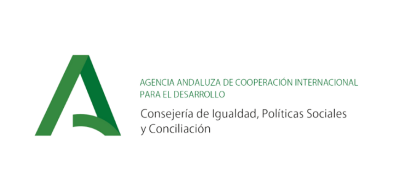The delegation of the Spanish University of Jaen finishes its tour in Palestine as part of its joint project with HWC
representatives of the Health Work Committees Foundation to discuss the progress of the project within its objectives aimed at raising awareness of chronic non-communicable diseases through education, designing A special electronic observatory, training the medical staff of the institution and working on developing and reformulating protocols for chronic non-communicable diseases in Palestine and a protocol on violence against women.
A meeting was also held with representatives of the Palestinian health sector represented by the Palestinian Ministry of Health, the International Relief Agency, and the Medical Relief Society at the headquarters of the Health Work Committees to discuss the same subject.
The Spanish delegation also visited Al-Quds University and met with the Vice President for Academic Affairs, deans, heads of departments and lecturers in the faculties of human medicine and health professions to learn about the progress of the educational process at the university during the Corona pandemic and the extent of the application of protocols for chronic non-communicable diseases and to discuss ways of cooperation between the two sides.
Al-Quds University briefed its counterpart, the University of Jaen, on the number of programs in the university's faculties and the scientific degrees it grants within the various programs, and heard from the visiting delegation about the health specialties offered by the University of Jaen.
The delegation also arrived in the south of the West Bank, beginning its tour from Dr. Ahmed Al-Maslamani Hospital, which is affiliated with the Health Work Committees Foundation, and met with the Foundation’s staff there, and listened to the director of the hospital, Dr. Sami Abu Farha, to explain and brief about the hospital, which consists of two floors, the ground floor for operations and the other for the recovery of patients, noting that the number of patients visiting daily Approximately 20 patients.
After that, they went to the Foundation's Halhul Medical Center. The delegation was received by Dr. Ibrahim Abu Ayyash, Director of the Primary Health Care Department. The Spanish delegation joined the diabetes education workshop as part of awareness campaigns to educate all segments of society about chronic non-communicable diseases.
Colleague Fahd Abu Seif also gave a slide presentation on the nature, services and projects of the health work committees in the Hebron area in the south, and the difficulties that centers such as the Hebron emergency center face in terms of checkpoints and military checkpoints. Where the abused women resort to the women's clinic, and the gynecologist transfers them to the psychiatrist at the center, where the medical team supervising these cases consists of a psychiatrist, a gynecologist, and a social worker, all of whom were trained within the training courses by the Palestinian Ministry of Health.
Regarding the link between mental illness and gender-based violence, Dr. Ibrahim Abu Ayyash said that the treatment of these cases goes through three stages, which are the stage of psychological support, the stage of education and education, and the stage of transfer to specialized centers.
The Spanish delegation at Hebron University discussed with the College of Nursing there about the project implemented by the Health Work Committees with the support of the University of Jaén, as well as learning about the progress of the educational process at the university, the extent to which chronic disease protocols are applied, and the practical aspect of training college students on these protocols in addition to the violence protocol.
The visit concluded by arriving at the Hebron Emergency Center in the old city of Hebron, where the delegation toured its facilities and was briefed on the services it provides to the residents of the area who suffer from the Israeli siege, closures and settler attacks.




